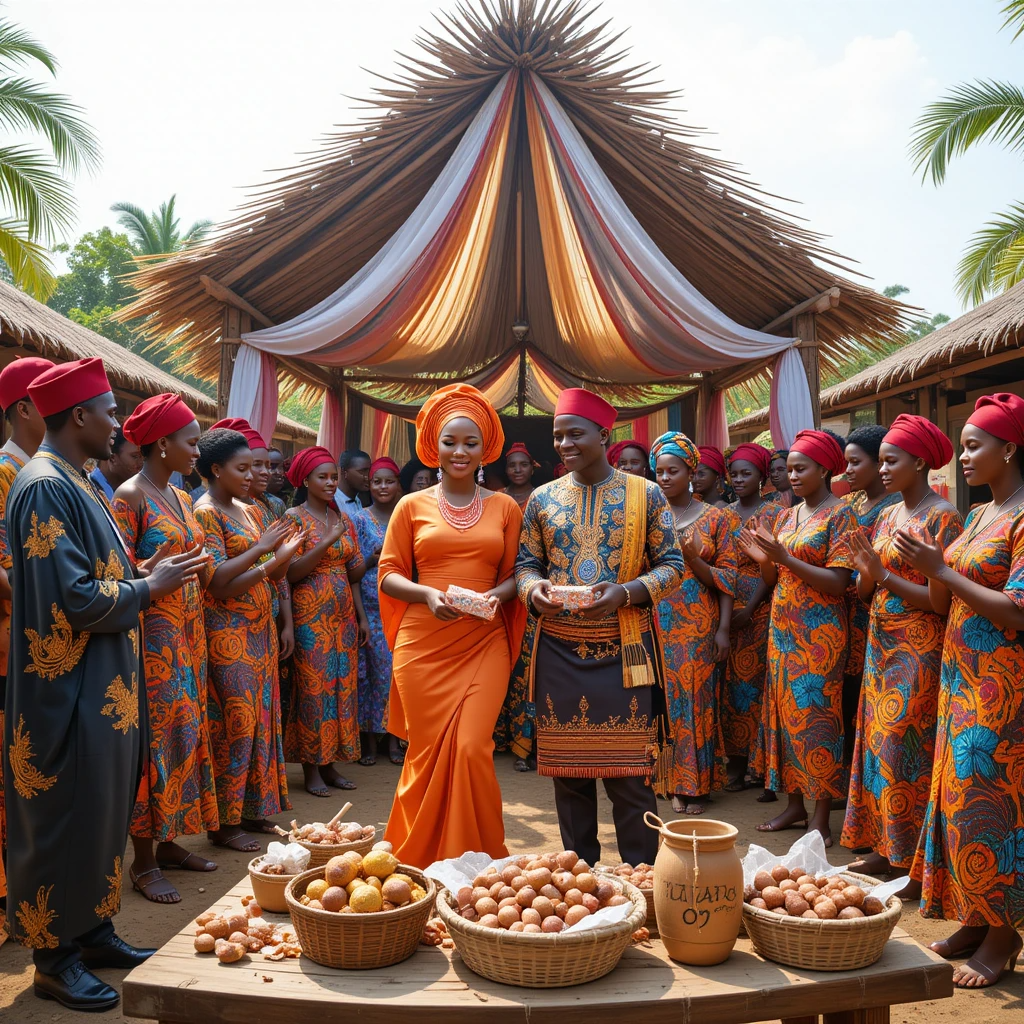Traditional Beliefs
- Supreme God (Chukwu or Chineke): Traditional Igbo religion is anchored in the belief in a supreme deity, Chukwu or Chineke. He is considered the creator of all things and the ultimate source of moral authority.
- Lesser Deities and Spirits: Alongside the supreme deity, there are lesser gods and spirits associated with natural forces and aspects of daily life. For example, Ala (or Ani), the Earth goddess, presides over fertility and morality. Others include Amadioha, the god of thunder and lightning.
- Ancestor Veneration: Ancestors hold a revered position in Igbo cosmology. They are believed to act as protectors and intermediaries between the living and the spirit world. Families maintain shrines to honor their forebears, seeking guidance and blessings.
Chi (Personal God or Spirit)
- The concept of chi is central to Igbo spirituality. It represents an individual’s personal spirit or guardian. Each person’s chi is considered a reflection of their destiny and moral compass. Maintaining a harmonious relationship with one’s chi is essential for success and well-being.
Influence of Christianity
- With the advent of colonialism and missionary work in the 19th century, Christianity took root among the Igbo. Today, a significant portion of Igbo people identify as Christian—often Catholic, Anglican, or Pentecostal denominations.
- Syncretism: Despite the prevalence of Christianity, many Igbo still incorporate traditional beliefs, rituals, and customs into their Christian practices. It is not uncommon to see both a church altar and a small ancestral shrine within the same household, reflecting a fusion of faiths.
Conclusion
Igbo customs, costumes, and religion are deeply interwoven aspects of a vibrant cultural heritage. From the communal bonds fostered by extended family networks and the ceremonial significance of the kola nut, to the colorful array of traditional outfits and the spiritual depth found in Igbo cosmology, the Igbo way of life remains a testament to the community’s resilience and creativity. Although modern influences and Christianity have shaped contemporary Igbo society, the essential features of tradition—respect for elders, reverence for ancestors, and the joyful celebration of life—endure as vital threads that continue to define and unite the Igbo people.


